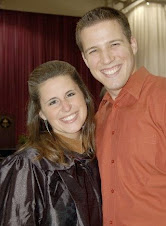I’m in the process of fleshing out some narratives that have been mentioned in the past few posts here on the blog. Today’s installment regards the January 30th blog about my teaching/preaching schedule. I made a passing allusion to being invited to speak at the World Relief Retreat. Well, that retreat was from Tuesday, February 3rd to Friday, February 6th, and indeed, I was the main speaker for the week.
The retreat was up-country, in the considerably cooler climates of Gitega, attended by the full World Relief staff in Bujumbura, Nyanza Lac, and Gitega. All in all, around eighty people gathered at a well-hidden Catholic retreat center with a view stretching over the hills and valleys of Burundi to meet with God and talk about the Kingdom of Heaven. Our country director, Ngaira, and I got things rolling on Tuesday evening.
We focused mainly on the idea of Shalom, the Hebrew concept of peace, and its threefold meaning to the Rabbis and Jews of Jesus’ day. The Kingdom of Heaven is the reality where that Shalom is in complete unity. We spent a day on each part. On Wednesday, we looked at our Shalom with God, whether we are in right relationship with our Creator. On Thursday, we looked at our Shalom with each other, and how Scripture insists that if we say we love God and are at odds with each other, we’re liars. On Friday, we looked at Shalom with the world, and how the work we do here at World Relief is part of putting God’s good creation back together again.
It was fascinating to watch people struggle with these ideas, because, to be frank, many people here have not made the connection between their job and their calling in the Kingdom. Many people on staff here at World Relief Burundi come to work every day for a paycheck, not a vision. They work because they have to feed their families, because they need to survive, because they are always one step away from being without. But when that is their primary motivation, the bar is only as high as is required to stay employed.
So, for example, the staff is asked to perform self-evaluations occasionally, to assess strengths and areas of improvement. Most of the time, the staff members will give themselves perfect scores, with no areas of improvement. This isn’t because they’re arrogant; it’s because they are afraid that if they admit deficiency, they’ll lose their jobs. They often refuse to admit mistakes or ask for clarity on assignments that they don’t understand, because they believe it will cost them their job. Their concern isn’t primarily executing their job well for the glory of the Father, it’s keeping a steady stream of income.
I wonder how often this is true about us in the States, as well. We do our work, even if it doesn’t square with our citizenship in the Kingdom. We many times work not for the benefit and healing of the world, but for the paycheck, the status, the security. Maybe our work is even going against Kingdom values, promoting greed or deception or consumerism, and we just haven’t connected Sunday to Monday. When you connect what you believe on Sunday to what you do on Monday, things start to take on new meaning.
This also has profound effects on unity in the staff here. These people, in impoverished mindsets, desperate for job stability, hungry for influence in a culture that exalts authority, haunted by tribal divisions that still exist but are rarely acknowledged, can become extremely vindictive, bitter, even out-and-out aggressive toward one another. Despite being professing Christians, World Relief is plagued by slander and gossip, aggressive power-plays, and even threats between staff members. Some play on governmental ties to tilt the scales to their advantage. Some spread rumors to undermine their coworkers. Then they sit together in devotions and praise a God who insisted the world will know His followers by their love for one another. And because, in Burundi, you don’t address conflict face-to-face, all this goes unmentioned for weeks, months, years.
So when we talked about Shalom with each other, those ideas were pushing against some serious wounds in that room. When we talked about how your work is restoring the Shalom of the world, we were asking people to seek first the Kingdom, and let God worry about the rest. And all of that works together to heal our Shalom with the Creator, Lover, and King. I’m not arrogant enough to think that everything changed from four days. But I believe the Kingdom is like a mustard seed. It’s like yeast working through dough. I can trust in that.
I was honored to share with this community. But my favorite part of the week was when the community responded and asked questions. People were really wrestling with the ramifications of the scriptures we were working with, and I was so thrilled to see new ideas start to seep into the fabric of this community. And it wasn’t only the well-educated and important who were asking the questions. The guards, the ladies who clean the office and bring tea, the drivers, the people at the bottom of the World Relief totem pole were asking questions to the white, western male who had been put in a position of authority. That simple fact was an incredible breaking-down of societal delineations in Burundi, a breaking-down that I think is right in line with the upside-down Kingdom we work to bring.
I’m now greeted by “Shalom” whenever I walk into the office, and I can only hope that is because Shalom is starting to become a reality there.
Tomorrow: Part III: The Birthday!














